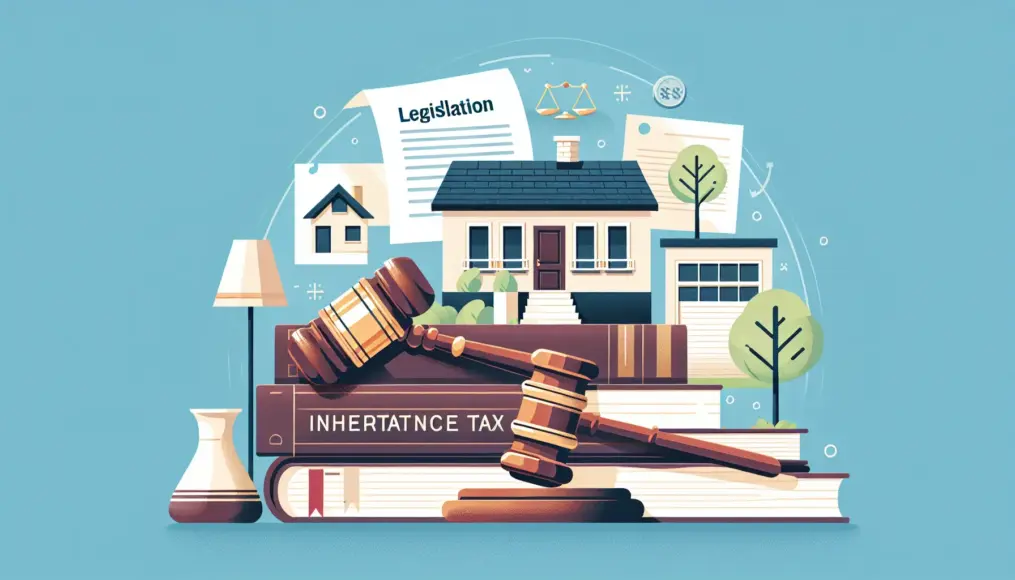Inheritance tax reform is a significant topic that can greatly impact our lives. Recent changes have altered the legal framework surrounding inheritance, leading to a shift in how families and individuals perceive their assets. What does this mean for those who are anticipating an inheritance, as well as their families?
In this article, we will delve into the background and objectives of the inheritance tax reform, along with specific changes that have been implemented. We will also explore the economic and psychological effects of these changes. Furthermore, we’ll discuss future prospects and challenges, providing insights that will help readers deepen their understanding of this important issue.
By increasing your knowledge of the inheritance tax reform, you may be better prepared for the future of both your family and yourself. So, we invite you to stay with us until the end.
- A detailed overview of the background and objectives of the inheritance tax reform
- An introduction to key changes and those affected
- An exploration of economic and psychological impacts, along with future prospects
Understanding the Background of Inheritance Tax Reform
The recent changes to inheritance tax law are significant policies that reflect the evolving social and economic landscape. As Japan faces a declining birthrate and an aging population, issues surrounding inheritance have come to the forefront, highlighting the need for new legislation to address these challenges. In this section, we’ll explore the background and objectives of the inheritance tax reform in detail.
The Evolution of Reform
The reform of inheritance tax has been driven by the government’s need to tackle fiscal challenges while enhancing social security. Specifically, concerns have been raised about asset concentration and inequalities in inheritance, prompting calls for corrective measures. Additionally, the intention behind reducing the inheritance tax burden is to encourage the transfer of assets to the next generation.
- The reform aims to enhance social security
- Asset concentration and inheritance inequality are pressing issues
- Efforts are being made to promote asset transfer to the next generation
Objectives of the Policy
The primary goal of the inheritance tax reform is to establish a more equitable tax system. By alleviating the burden associated with inheritance, the reform seeks to support families in achieving economic stability. Moreover, the revenue generated from these changes is expected to be utilized for public services and infrastructure development.
- The reform aims to realize a fairer tax system
- There is a focus on supporting families’ economic stability
- Revenue generated will be allocated to public services and infrastructure development
Key Changes in Inheritance Tax
Understanding the specific changes made to inheritance tax is crucial. In this section, we’ll delve into the main amendments and who they affect. By grasping these changes, you can better prepare for future inheritances.
Main Changes
The recent reforms to inheritance tax include a reduction in the basic exemption amount and a revision of tax rates. These adjustments are expected to ease the tax burden for many. Additionally, the methods for valuing certain assets have been updated, aiming for a fairer distribution of tax responsibilities. Notably, the increased transparency in calculating inherited wealth is a significant improvement.
- The basic exemption amount has been reduced.
- A review of tax rates is expected to lighten the burden.
- Changes in asset valuation methods have enhanced transparency.
Who Will Be Affected
The inheritance tax reforms will primarily impact families with substantial assets and those involved in business succession. Particularly when passing wealth from parents to children, greater caution is now required. The anticipated reduction in tax burdens is expected to facilitate smoother asset transfers to the next generation. This could also have a positive ripple effect on the economy as a whole.
- Families with significant assets are more likely to be affected.
- Attention is also needed for business successions.
- There is hope for smoother asset transfers to future generations.
The Impact of Inheritance Tax Reforms on Families
Changes to inheritance tax can have a variety of effects on families. In this section, we’ll take a closer look at both the financial and psychological impacts. Understanding how alterations to inheritance tax can influence family life and perspectives is crucial.
Financial Implications
With the reform of inheritance tax, it’s anticipated that the burden of inheriting assets will be eased. Notably, adjustments to the basic deduction amounts and tax rates can significantly reduce the financial strain for families facing hefty inheritance taxes. This relief can lead to a more stable life after inheriting, allowing families to focus on rebuilding and planning for the future.
- Expected relief from inheritance tax burdens
- Potential for greater financial stability
- Easier planning for life after inheritance
Psychological Implications
The changes in inheritance tax also affect families on a psychological level. With reduced anxiety and concerns about inheritance, communication among family members is expected to improve. This shift can help families view inheritance in a more positive light, potentially strengthening their bonds. By alleviating the stress associated with inheritance, families can build healthier relationships and navigate these changes more smoothly.
- Reduced anxiety about inheritance
- Improved communication within families
- A more positive outlook on inheritance
Future Outlook on Inheritance Tax Reform
The reform of inheritance tax could have a range of impacts, not just in the present but also in the future. In this section, we will explore the anticipated challenges that may arise from these reforms, along with potential strategies to address them. Understanding how the inheritance tax system may evolve is crucial for preparing for the future of families and individuals alike.
Anticipated Challenges
As the changes to inheritance tax take effect, several challenges are likely to emerge. First, there may be concerns about perceived inequities in the new tax burdens that arise from the reforms. Additionally, the complexity of calculating inheritance tax could increase, leading to a greater need for professional assistance. This, in turn, raises worries about the time and costs associated with the inheritance process.
- Potential inequities in tax burdens
- Increased complexity in calculating inheritance tax
- Concerns about rising time and costs for the process
Future Strategies
To address these challenges effectively, appropriate measures will be essential. For instance, enhancing education and information access regarding inheritance tax can help families better understand their situations. Furthermore, strengthening collaboration with professionals will be crucial in establishing a support system for smoother procedures. By implementing these strategies, we can mitigate the impacts of inheritance tax reform and create a more favorable inheritance environment.
- Enhance education and information on inheritance tax
- Strengthen collaboration with professionals
- Establish a support system for smoother procedures
Conclusion
The reform of inheritance tax is an important issue that significantly impacts our lives and families. The driving forces behind these changes include an aging population and various economic challenges, prompting policymakers to take action. By understanding the specifics of the reform and its implications, we can better prepare for future inheritances.
It’s also crucial to consider the economic and psychological effects of inheritance tax reform. In the future, effective measures will be necessary to tackle these challenges, and fostering communication within families as well as facilitating asset transfer will be essential. Deepening our understanding of inheritance tax and making the necessary preparations is vital.
- Inheritance tax reform addresses challenges posed by an aging population and economic issues.
- Understanding the reform allows for better preparation for inheritances.
- Considering both economic and psychological impacts is essential for appropriate measures.
Gaining a deeper understanding of inheritance tax is crucial for the future of your family. If you have any thoughts or questions, please feel free to share them in the comments!



Comment